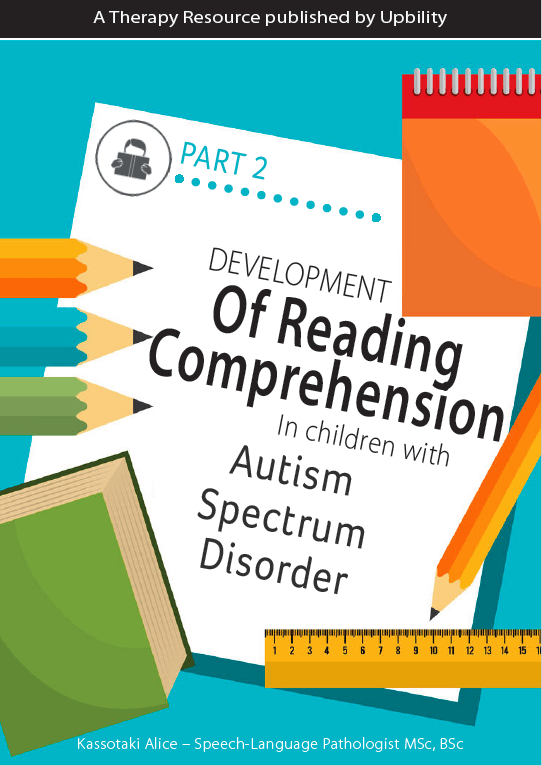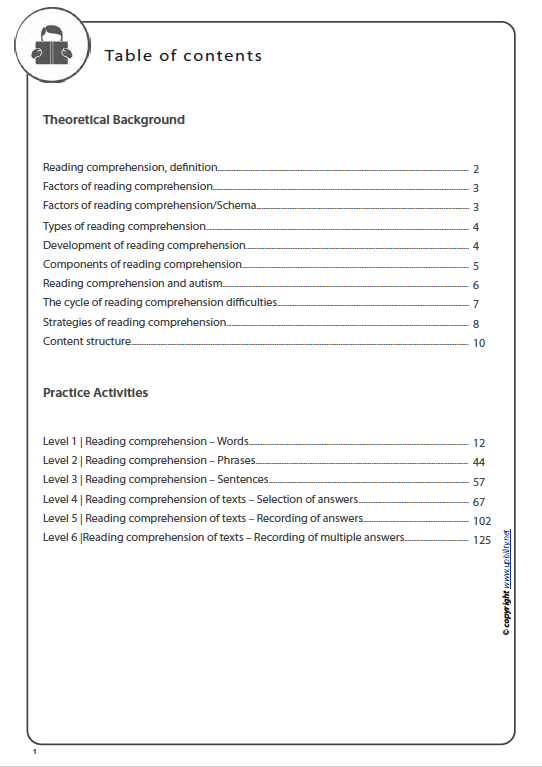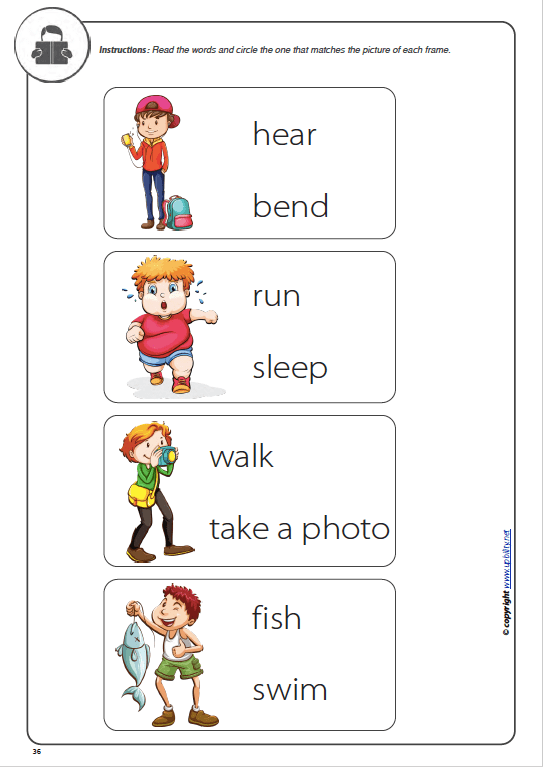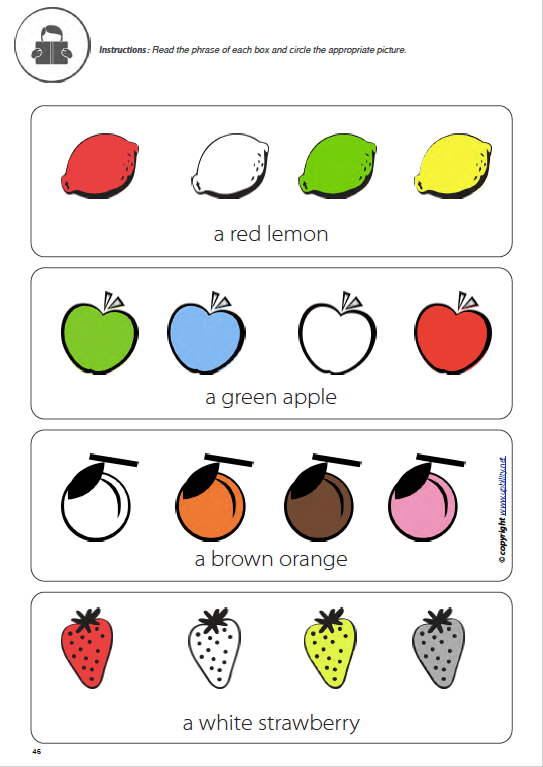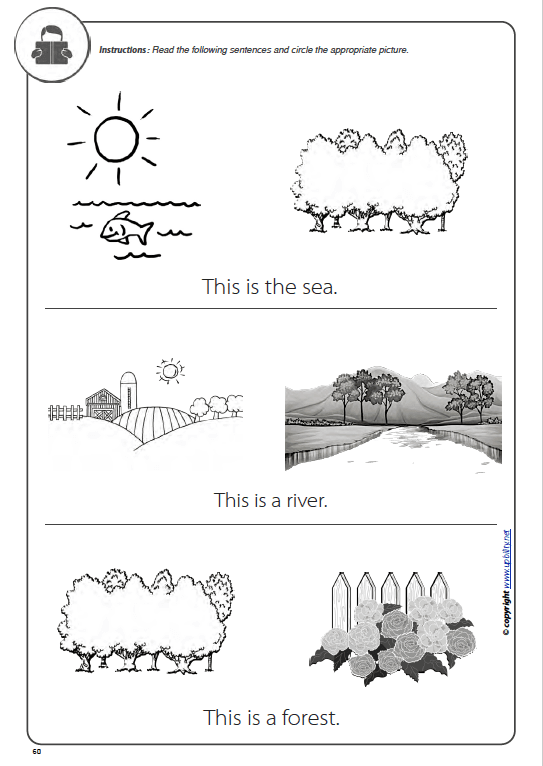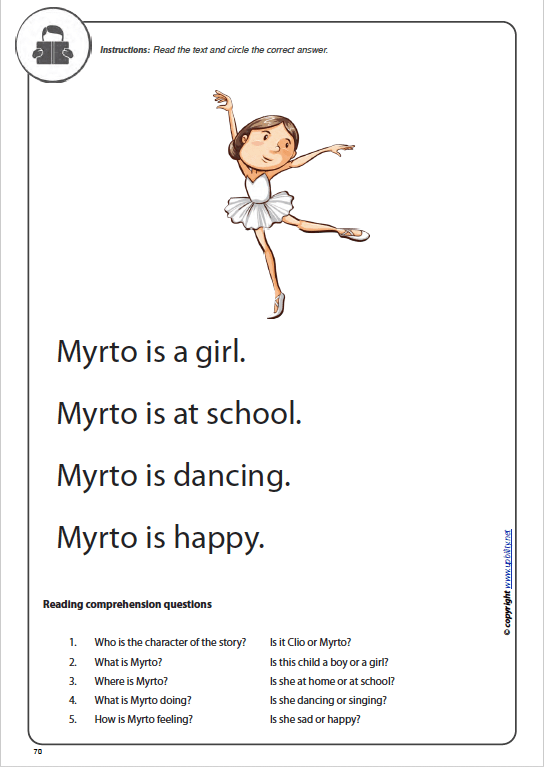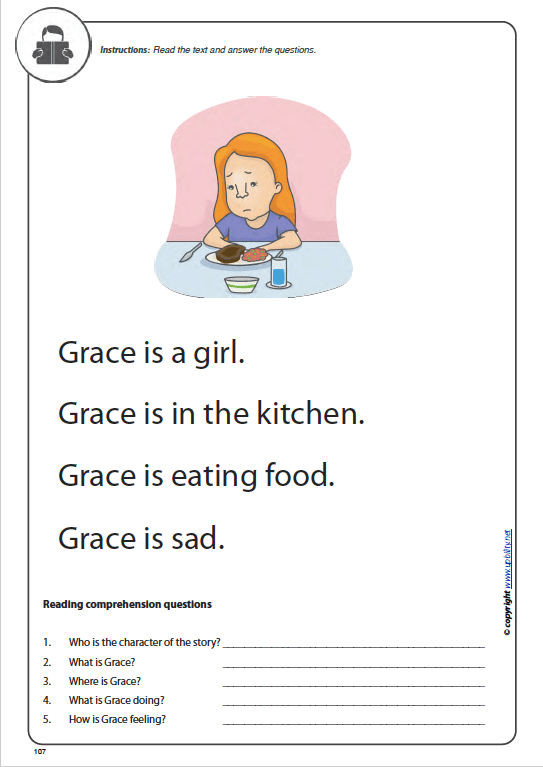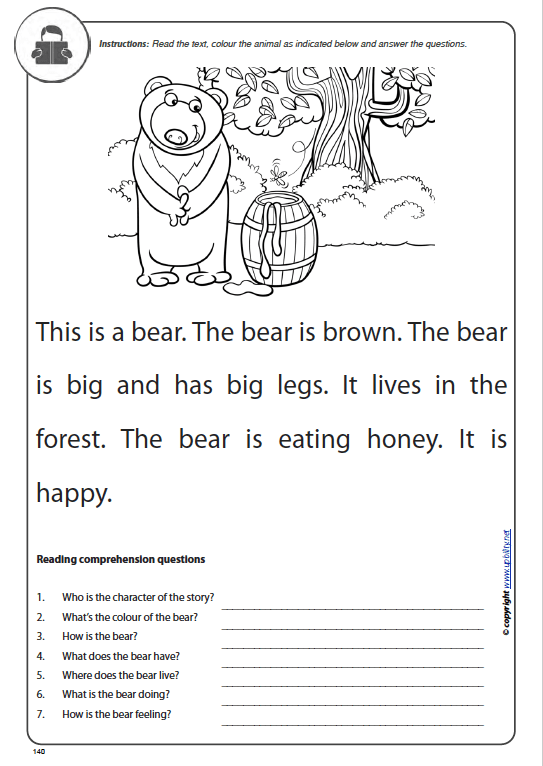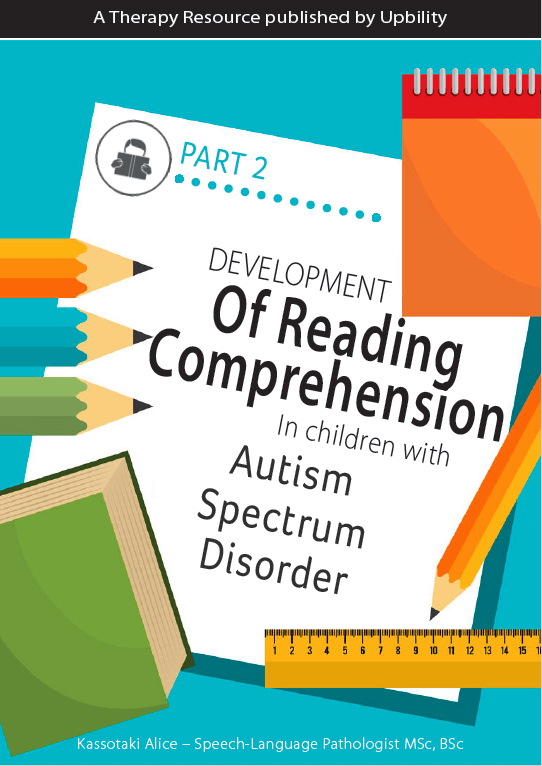Developing Reading Comprehension in Children with Autism Spectrum Disorder - PART 2
Available
Developing Reading Comprehension in Children with Autism Spectrum Disorder - PART 2 - is backordered and will ship as soon as it is back in stock.
Description
Description
Reading Comprehension - PART 2
Age Group : 6 years and over
Learners with autism can read and process written language in a fluent way, in contrast to children with dyslexia who often try hard to decode written language. However, these children are not always able to approach semantic meaning in the same way. They can have trouble visualizing action and understanding the social interactions upon which many storylines rely. A detail might absorb all their attention and prevent them from fully processing the rest of the text.
Whether you are a specialist or simply a parent, you will find this book very useful!
According to scientific research, children acquire decoding and reading comprehension skills at the same time, but each skill develops independently of the other. Children with autism spectrum disorder (ASD) usually develop decoding skills, but have difficulty with reading comprehension. They can identify words relatively more easily than understanding what they have read. This may be attributed to the fact that comprehension is a more abstract skill than decoding.
The book "Developing Reading Comprehension in Children with Autism Spectrum Disorder - PART 2" proposes six levels of intervention, selected based on scaling difficulty.
- The first level comprises activities for the development of reading comprehension of words.
- The second level comprises activities for the development of reading comprehension of phrases.
- The third level comprises activities for the development of reading comprehension of sentences.
- The fourth level comprises activities for the development of reading comprehension of texts. Children read a text that has four sentences.
- The fifth level comprises activities for the reading comprehension of texts. Children read a text that has four sentences
- The sixth level comprises activities for the development of reading comprehension of texts. Children read a text that has six sentences.
Specifications
Specifications
-
Book format
-
SKU
-
Age
-
Number of pages
-
Dimensions
-
Author
-
Pagination
-
Translation & Proofreading
-
Year of publication
Contents
Contents
Author
Author
Age
School-aged children
Author
Alice Kassotaki - Speech Language Pathologist MSc, BSc
Secure Payments
All major methods accepted — fully protected from checkout to delivery.

